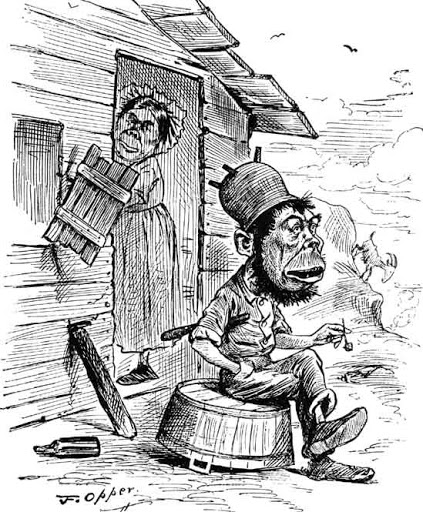To address the so-called 'Irish problem,' the United States police force was established
Submitted 5 years 7 months ago by CultureWhiz.
There was no police department in the early days of the United States. In the early colonies, there were two types of policing. A surveillance system in which male citizens volunteered to service a few hours per week. It was both informal and communal, and was known as "The Watch" or "The Big Stick" for private-for-profit policing. This was insufficient to address the altering urban dynamics caused by the arrival of approximately one million Irish from Ireland.
As a result of centuries of British subjugation, the Irish once constituted the vast majority of criminals in the United States. In the early 1900s, anti-Catholic and anti-Irish mobs torched homes and churches during the fatal Broad Street Riot due to the absence of formal police force. Boston was the first city to establish a full-time police force, followed by New York in 1845. But these early police forces lacked any semblance of professional training or discipline. There was a lot of random beatings of people to 'keep order,' The new police departments shifted the role of law enforcement from apprehending criminals to preventing crime by proactively controlling the "dangerous classes".
In many cities, Irish-Americans were considered a prime example of a "dangerous class," which meant that no one would hire them to work, let alone in the nascent police departments. In 1890, Irish people had IQs 20 percent less than the Protestant Americans and in the mass media they were portrayed as witless, heavy-brown thugs, sporting unfit waistcoats, and squatting little tobacco pipes.

The mass hiring of Irish police officers had to wait until Irish voters gained political power in the cities, which occurred within the following decades. Given the large and growing Irish population in a number of urban areas, Democratic Party leaders swiftly determined that it would be prudent to solicit their votes. "How do you get votes?" Dwyer-Ryan remarks. “You do favors. You get them jobs.”
Eventually, the hiring of a few Irish policemen led to many more, as cops helped their friends get jobs. Given the structure of Irish-American life lent itself particularly well to this kind of networking. Close-knit Catholic parishes and county organizations—based on where Irish members’ families came from—functioned as employment networks.
But even as the Irish came to play an outsize role at city halls and police departments, they were also major forces in street gangs and organized crime all the way into the early 20th century. Even now there are some really extreme cases where you even find [gangsters and cops] in the same family.
At the same time, more Southern and Eastern European immigrants, and African-Americans from southern states, were arriving in northern cities, creating new tensions for Irish cops. They still beat up Irish people—Irish suspects—but they’re also dealing in a more hostile way with newcomers. During riots, it was common for Irish police to join forces with Irish mobs against less politically powerful Italians, Jews or African-Americans.
Over time, these groups—and others that came after them—did their own political organizing to gain power in city government and police departments. Meanwhile, Americans with Irish heritage spread far beyond the cities and now number more than seven times higher than the population of Ireland itself (32 million Americans have predominantly Irish roots). But Irish-Americans, who began their rise to power at the very birth of modern policing, still maintain a huge presence in many police departments to this day.
Sources:
https://www.history.com/news/when-america-despised-the-irish-the-19th-ce...
https://www.history.com/news/how-stereotypes-of-the-irish-evolved-from-c...
https://www.historyplace.com/worldhistory/famine/america.htm



